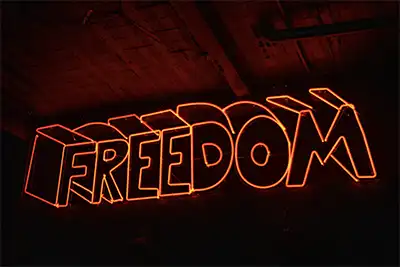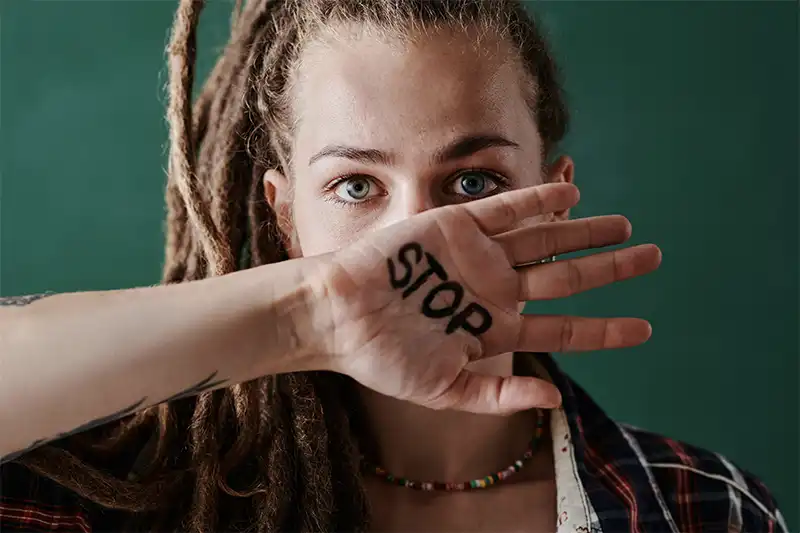Activate Your Freedom Code
The month of July, in the United States, starts by celebrating July 4, Independence Day. This day marks the historic date in 1776 when the Declaration of Independence was approved by the Continental Congress. The written declaration stated that the American colonies were tired of being ruled by Great Britain and the monarchy. They wanted to become their own country. That led to a lot of turmoil, resistance and fighting for that right to be clearly established.
This month, I want to address the need we all have for freedom and independence from feeling oppressed, disregarded, controlled, and disrespected. So many people are feeling sad, disappointed, scared and trapped in a world that doesn’t seem to see them. So, I want to share with you my “Freedom Code” and how to activate it.
The term “freedom code” can be interpreted in various ways based on the context in which it is used. It generally denotes a set of principles, guidelines, or frameworks designed to promote and protect freedom in different areas of life. If you have a specific context or example in mind, I can provide a more tailored explanation in this sharing.
For me the code represents how I live in this world, how I wish to be treated and how I wish to treat others. It represents my values and dedication to the world we live in being a place of peace, conscious collaboration, and harmony. This is especially important to me at this time when the world is witnessing so much discord and suffering.
What I believe
 Let’s face it. No one really wants to feel controlled and yet people around the world have historically set up regimes and organizations that want to control the masses and are even willing to do it violently. Dysfunctional families have members that are willing to do anything to control people in their sphere. Some relationships misinterpret love as a place to control.
Let’s face it. No one really wants to feel controlled and yet people around the world have historically set up regimes and organizations that want to control the masses and are even willing to do it violently. Dysfunctional families have members that are willing to do anything to control people in their sphere. Some relationships misinterpret love as a place to control.
From my perspective, controlling behavior can feel like “power” to some but in fact it is high jacking people’s ability to choose the path they most desire and be the best they can be. None of this works. We just keep experiencing more war, poverty, pain, hurt, and famine. And, people eventually rebel.
Our diversity, creativity, ideas, and individuality offer us the opportunity to lift one another and heal the past. Otherwise, we are destined to keep creating the very things we don’t want.
A “freedom code” is not a universally defined term and can have different meanings depending on the context. Here are a few possible interpretations:
A. Personal Philosophy or Guiding Principles
In a personal or philosophical context, a freedom code could refer to a set of principles or guidelines that an individual follows to live a life characterized by personal freedom and autonomy. This might include:
- Core Values: Principles such as honesty, integrity, and respect.
- Life Goals: Aspirations and objectives that align with one’s sense of freedom.
- Boundaries: Limits set to protect one’s personal space and freedom.
B. Legal or Political Framework
In a legal or political context, a freedom code might refer to a set of laws or regulations designed to protect individual freedoms and rights. This could include:
- Human Rights Charters: Documents like the Universal Declaration of Human Rights.
- Constitutional Provisions: Sections of a country’s constitution that guarantee civil liberties.
- Legislative Acts: Laws enacted to ensure freedom of speech, freedom of assembly, etc.
C. Cultural or Social Movement
In a cultural or social context, a freedom code could represent the ethos or guiding principles of a movement aimed at achieving greater social, economic, or political freedom. Examples include:
- Civil Rights Movements: Campaigns for racial equality and justice.
- LGBTQ+ Rights Movements: Efforts to secure equal rights and freedoms for LGBTQ+ individuals.
- Economic Liberation Movements: Initiatives aimed at reducing economic inequality and increasing financial independence.
We are watching so much division in the world because some people believe that their values and guiding principles outweigh those of others. Their words say “harmony” but their actions yell “I’m right!”
Stop Complaining: Be the Change

I don’t know about you, but I am tired of hearing people complain about the current political, social and economic situations in the world and in our lives. I don’t believe we are on this earth to suffer. I also don’t believe that complaining has ever solved any problem.
So, I am dedicated to making change in me with the deep desire that my change can be a catalyst to create a world that works for the whole. Making a positive change doesn’t always require grand gestures; often, small, consistent actions can have a significant impact. Here are some simple things you can do to make a change:
Volunteer Your Time: Spend a few hours each week or month volunteering at a local charity, food bank, animal shelter, or community organization.
Support Local Businesses: Shop at local stores, eat at local restaurants, and use local services to help strengthen your community’s economy.
Educate Yourself and Others: Stay informed about important issues. Share knowledge with friends and family to raise awareness and encourage informed discussions. Open your mind to different resources than you usually use.
Practice Kindness: Perform random acts of kindness, such as helping a neighbor, complimenting a stranger, or donating to a cause you care about.
Get Involved in Your Community: Attend town meetings, join local clubs or organizations, and participate in community events to stay connected and make your voice heard.
Advocate for Causes You Believe In: Write to your representatives, sign petitions, and support advocacy groups working on issues important to you.
Be a Positive Role Model: Lead by example in your actions and attitudes. Show others the importance of kindness, respect, and responsibility.
Support Education: Donate books, school supplies, or your time to local schools and educational programs to help ensure everyone has access to learning opportunities.
By incorporating any of these simple actions into your daily life, you can contribute to meaningful change in your community and beyond.
Freedom Code Statements

Here are three statements I use to live by to activate my freedom code:
1. “I will uphold the dignity and rights of all individuals, recognizing that freedom for one is freedom for all.”
- This statement emphasizes the importance of mutual respect and the interconnectedness of individual freedoms. It encourages people to advocate for and protect the rights of others, fostering a community where everyone’s freedom is valued.
2. “I will speak and act with integrity, using my voice to challenge injustice and promote truth.”
- This statement highlights the role of honesty and courage in supporting freedom. It calls on individuals to be proactive in addressing injustices and to use their influence to advocate for what is right and just.
3. “I will embrace diversity and inclusion, understanding that true freedom flourishes in a society where all perspectives are valued and respected.”
- This statement underscores the importance of inclusivity and the recognition of different viewpoints. It promotes the idea that a free society is one that celebrates diversity and ensures that everyone has a place and a voice.
I truly believe we are all here on the planet to create a “harmonic convergence” where love and peace is the norm. I invite you to join me in activating your “freedom code” and bring your best self to the world. We can make a difference.
Much love and Light,
Cynthia


